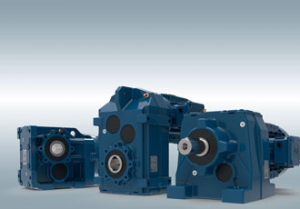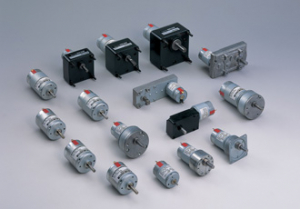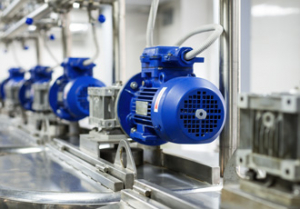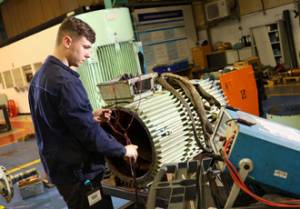Geared motors: The application considerations

When procuring a geared motor, technical buyers at machine and plant manufacturers must consider numerous aspects to ensure that the purchased technology ultimately guarantees high plant availability and an optimum cost-benefit ratio. Here, Marek Lukaszczyk, European and Middle East Marketing Manager at WEG, explains how to ensure a geared motor unit best suits your application.
Matching a geared motor closely to the specification is a must. the more clearly defined the specification, the better. After all, if the wrong gear is selected, the cost-benefit ratio will be sub-optimal. Similarly, the geared motor will not meet the application requirements efficiently if it is oversized or undersized, or simply cannot survive the longevity ofthe application.
From a technical point of view, two factors are critical when selecting a gear unit: the application requirements and the available space. This always depends on the location of the gear unit. Only once these two factors are fully known can the right gear unit be selected. A good purchasing decision will prove itself in practice, with a long lifespan and unwavering reliability.
Depending on where the geared motor is used - for example in the offshore sector, the cement industry or steelworks - appropriate designs must be carefully considered. These include different coating systems, in particular a multi-layer coating structure, the protection class, as well as the type of shaft seal rings and shaft material.
Extremely robust and torsionally stiff systems are required for very high torque applications, especially for demanding applications with large loads and high accelerations. During operation, this also results in radial and axial impacts that the gear unit must absorb, for example, during start-up or uneven loading of conveyor belts.
Another example of special conditions is an application in hazardous areas. In these cases, the use of suitable integral motors that complies with Directive 2014/34/EU (ATEX) is essential to ensure safe and legal operation.
The available space of the application and the installation dimensions of the geared motors are also key factors, especially when retrofitting. The reason being that when purchasing a gear unit, no design changes should be necessary to the company’s own machines or systems. For example, the input and output shafts of parallel shaft gears are offset as parallel as possible.
As a result, they have a very flat design which allows them to be installed in a space-saving manner. The output shaft is usually hollow, allowing the gear unit to be mounted on an existing machine shaft. If the axial installation space is limited, a bevel gear is typically used.
If you’re interested in finding out more about best practice geared motor purchasing, check out WEG’s guide What mechanical engineers and plant operators need to know when buying geared motors. Download the guide here.
Similar articles
More from WEG ELECTRIC MOTORS (U.K.) LTD.
- Helping engineers understand the new motor legislation 1st June 2021
- Transformer to help power Africa 19th April 2021
- Warehouse expansion for WEG Belgium 2nd March 2021
- Three equipment upgrades for agility and efficiency 1st February 2021












Write a comment
No comments